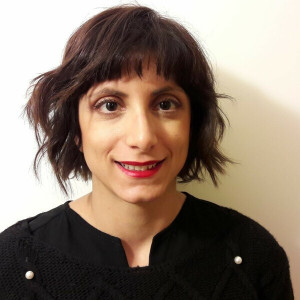Anyone learning French will need to know how to form questions, which includes understanding the question words.
Here's everything you need to know about French question words.

French Question Words
Let's start with the question words themselves.
So, what exactly is a question word?
In English, these are technically known as "interrogative words", "question words", or even "wh-words".
What, who, which, where, when, how, why and whence are all the English individual interrogative words. However, you'll typically learn the first seven, as "whence" is rarely used.
While English lessons typically cover "how many" and "how much", learning French question words requires more effort. However, the practicality of these words in everyday conversations should motivate you to delve deeper. You'll need to learn around a dozen French question words, each serving a unique purpose in communication.
Fortunately, the translations of French question words align quite well with their English counterparts. This means that unlike other aspects of French, such as grammatical gender and everyday French words, you won't have to grapple with something somewhat untranslatable. This should provide some reassurance as you embark on your French learning journey.

Here are the French language's main question words in alphabetical order (the French alphabet is the same as English):
- À qui – whose
- À quoi – of what
- Combien – how much/how many
- Comment – how
- Lequel/laquelle/lesquels – which one(s)
- Où – where
- Pourquoi – why
- Quand – when
- Que – what
- Quel/quels/quelle/quelles – who/which
- Qui – who
- Quoi – what
Now that you've been introduced to them, let's delve into each French question word more closely. This exploration will deepen your understanding and pique your curiosity about the nuances of the French language. So, let's get started!
Perfect your pronunciation with French courses Sydney here on Superprof!
Qui? / Who?
The word "qui" functions similarly to "who" and "whom" in English. It can be the subject and object of a question.
Typically, the word "qui" refers to people, so in sentences, you can replace the question word with the person's name when forming affirmative and negative sentences for the answer.
The word is pronounced very similarly to the English word “key”.
- Qui vient ce soir ? - Who is coming this evening?
- Qui voyez-vous ? - Whom do you see? / Who do you see?
Just remember that these questions here are in the polite "vous" form, but it also pays to know how to say "please" and "thank you" in French in the event you get the formality wrong as people will be more forgiving.
You can also use “qui” with prepositions like “avec” (with), “pour” (for), “de” (of/from/etc.).
- Pour qui est le gâteau ? - For whom is the cake? / Who is the cake for?
- Avec qui regardons-nous le film ce soir ? – With whom are we watching the film? / Who are we watching the movie with this evening?
- De qui parles-tu ? – About whom are you speaking? / Who are you speaking about?
Que? / What?
“Que", which is pronounced more like "keuh", refers to all manner of things except people (for which we use "qui") and is usually the object in sentences, but not always. It's important to note the difference between "que" and "qui" in French, as they are often confused by learners.
If you know about forming questions in French, you'll know that questions invert the subject and the verb. If the verb following "que" begins with a vowel, the "que" is contracted.
- Que faites-vous ? – What are you doing?
- Que regardez-vous ? – What are you watching?
- Qu'écoutez-vous ? - What are you listening to? (Note the contracted form)
The word “que” can't be used with prepositions like “qui” so you can't use “à que”, “de que”, or “pour que” to form questions in French.
Instead, it would be best if you used the following question word.
Quoi? / What?
When you need a question word that means “what” with prepositions, the French question word “quoi” is the one to use.
Typically, it appears at the end of more casually constructed questions in French, so you'll more likely hear it in spoken French.
Here are some examples of it being used for the previous questions that used “que”:
- Vous faites quoi ? – What are you doing?
- Vous regardez quoi ? – What are you watching?
- Vous écoutez quoi ? – What are you listening to?
You can also use it in other ways, like these examples:
- C'est quoi ? – What is it?
- À quoi penses-tu ? – What are you thinking about?
Qu'est-ce que... / What?
There's one way to ask a "what" question in French that seems more complicated. Still, it's typically used in informal situations, and the structure is the same as that of an affirmative sentence. Replace the subject with "qu'est-ce queue".
Firstly, it's pronounced roughly like “kess-suh-keuh”, “kess-keuh”, or even sometimes like “skeuh”.
The previous questions from before would be like this:
- Qu'est-ce que vous faites ? – What are you doing?
- Qu'est-ce que vous regardez ? – What are you watching?
- Qu'est-ce que vous écoutez ? – What are you listening to?
This common structure isn't really an expression, but you can sound more fluent by learning French idiomatic expressions.
Où? / Where?
The word “où” refers to a place in question words in French and you can form questions using the same formal structure with the verb and subject inversion.
It's pronounced like "ooh", and you can form questions with it like:
- Où est ta maison ? – Where is your house?
- Où mangez-vous ? – Where are you eating?


Quand? / When?
You can use the French question word "quand" when referring to a time. You pronounce the word like "kaan" (with a French nasal vowel pronunciation).
- Quand venez-vous ? – When are you coming?
- Quand partez-vous ? – When do you leave?
If you want to answer a "when" question, you might want to learn the days and months in French.
Pourquoi? / Why?
Use the French question word "pourquoi" to refer to a reason. The literal translation is "why", and the questions are formed in the same way as many of our previous examples but with the question word replaced by "pourquoi".
You pronounce the word like “pour-kwah”. Here are some examples:
- Pourquoi fumez-vous ? – Why are you smoking?
- Pourquoi manges-tu ? – Why are you eating?
Perfect your pronunciation with a tutor in French lessons online here on Superprof!
Comment? / How?
The word "comment" refers to a method or process, but you can also refer to a status or condition, like how we say "How are you?" in English.
It's pronounced a bit like “com-ahn”.
Here are some of the most common ways to form questions with it:
- Comment allez-vous ? – How are you? (lit. How are you going?)
- Comment ça va ? – How is it going? (i.e. How are you?)
- Comment faites-vous ça ? – How are you doing that?
Combien? / How much/many?
Pronounced like “com-been-en”, the word “combien” refers to quantities. Typically, it's used to ask how much something costs.
For example, you could say:
- Combien ça coûte ? – How much does it cost?
- Combien de biscuits avez-vous mangé ? – How many biscuits have you eaten?
- Combien d'amis as-tu ? – How many friends do you have?
When you use the word “combien” before a noun, you need to add the preposition “de” after it like in the second and third examples. In the third example, “de” contracts because the following word begins with a vowel.
Quel/quels/quelle/quelles? / Which?
Despite these four French question words being written differently, they're all pronounced like "kell".
This means "which" and is used to refer to a choice. There are four options because they have to agree with the grammatical gender of the nouns (masculine, feminine, and singular and plural versions).
- Masculine singular: Quel
- Feminine singular: Quelle
- Masculine plural: Quels
- Feminine plural: Quelles
Here are a few examples of how you can form questions with them.
- Quel film voulez-vous regarder ? – Which film do you want to watch?
- Quelles sont tes matières préférées à l'école ? – What are your favourite subjects at school?
- Quels fromages vas-tu manger ? – Which cheeses are you going to eat?
It might help to learn the French words for colours, too, as you may get asked about colour with a "which" question.
Lequel/laquelle/lesquelles? / Which one(s)?
Last, the French question words refer to "which one" or "which ones" from a specific choice.
For example, if you asked somebody in English, "Here are some biscuits. Which one would you like?", this would use one of these question words depending on the grammatical gender of the noun.
They're pronounced with “leuh-kell” (lequel), “lah-kell” (laquelle), “lay-kell” (lesquelles).
Here are some example questions using them:
- Laquelle est votre voiture? – Which one is your car?
- Lequel de ces trains dois-je prendre? – Which of these trains do I have to take?

Get Help with Learning French from a Private Tutor
As you can see, there are plenty of ways to form questions in French and lots of different question words to learn, and while we can only partially go through some possible ways to ask questions in French, a private tutor can help you.
If you'd like to learn more French with a tutor, search for one on the Superprof website. You can browse their profiles, see what their other students think of them, and how much they charge.
Many tutors on our website offer the first lesson for free, so why not try a few potential tutors before choosing the one that works best for you and what you like to learn?
To start, search for "French" on the Superprof website today and compare some French tutors.
Find French language courses today!
Summarise with AI:















